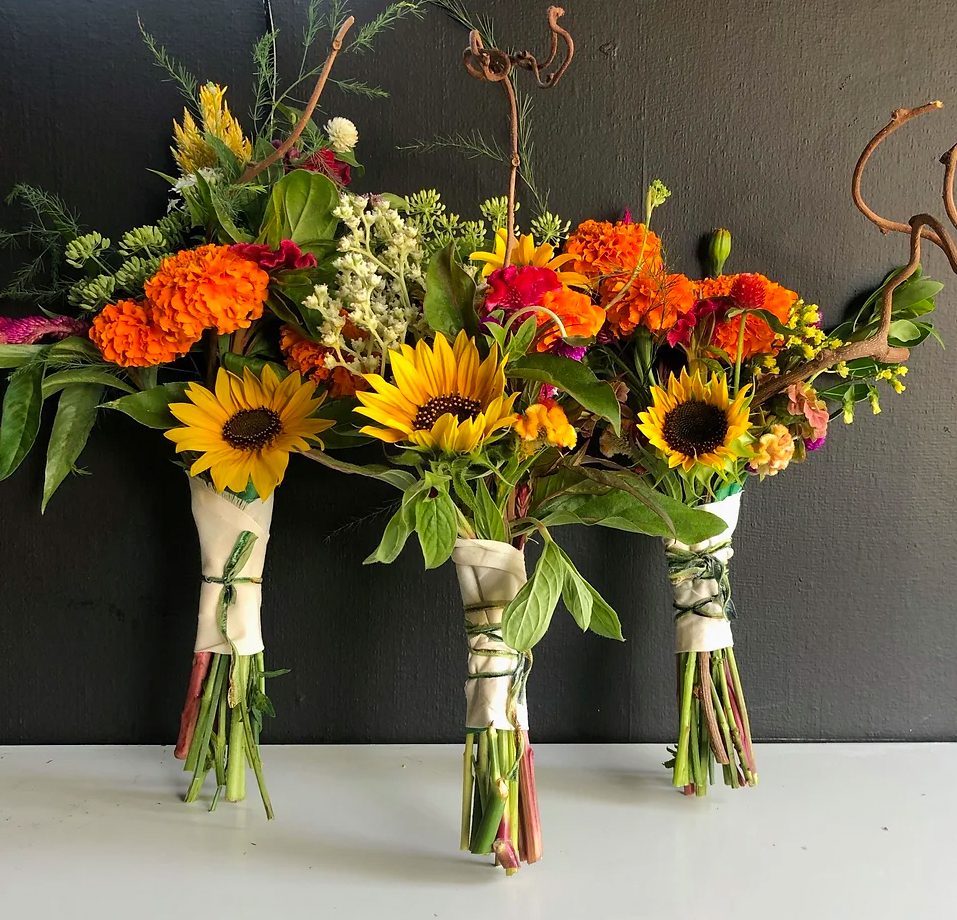After bloom of Valentine’s Day demand, New Haven florists reflect on changing industry
Valentine’s Day flower shopping offers a view into the flower industry and supply chain.

Courtesy of BLOOM
Sales flourished at flower shops in New Haven a few weeks ago as florists managed one of their busiest days of the year — Valentine’s Day.
In order to make the day special for local lovers, stores surveyed customers, began accepting preorders, coordinated flower production with local flower farms and shifted their business models to keep up with the demand.
BLOOM, a multi-purpose community space that also houses a flower shop, became the first business in New Haven to deliver flowers via DoorDash a few weeks ago after owner and founder Alisha Crutchfield saw that the platform also delivers plants. According to Crutchfield, because Valentine’s Day fell on a weekday, not everyone could make it to the store in person. However, DoorDash allowed BLOOM to mitigate that challenge and access a larger market.
“Valentine’s Day was obviously our biggest day of the year to date since we opened,” Crutchfield said. “We were able to serve over 200 people that day. Yeah, it was out of this world.”
Crutchfield also credited BLOOM’s partnerships with local flower farms and distributors for its success during the Valentine’s season. She said that leading up to and on Valentine’s Day, she and her team were in contact with farms to make sure the store was fully stocked with roses and other products popular during the holiday.
Crutchfield told the News about how much effort goes into creating a single bouquet, describing the process of personalizing the colors and aromas of arrangements. She added that Valentine’s Day was special for BLOOM because it allowed the shop to showcase its “unique and intentional designs.”
At Mae Flower and Gift Shop, owner Nethia Joyner estimated that Valentine’s Day likely accounts for nearly 10 percent of the store’s annual business, although Mother’s Day is its busiest holiday overall. She added that this season brought a strong return in sales after a COVID-19 pandemic-induced lull.
Although traffic does increase around Valentine’s Day, Joyner said that the business was able to keep up with the increased demand thanks to her team’s use of social media and online ordering to assess interest for certain products.
“During that time, we normally put out flyers and brochures, and send little things out on like Instagram [and] Facebook, and so we get a feel for what the people like,” Joyner said. “Most people said they want to shower their significant other with flowers and candy and teddy bears and love and, you know, different chocolates and stuff like that.”
Flower shops like BLOOM and Mae Flower rely on local flower farms and — especially during the winter — large flower wholesalers to keep their shelves stocked during the season.
According to Simple Life Flower Farm owner Ashley Gulick, winter poses a significant challenge for local farmers, as most flowers cannot survive the cold. Unless she receives special orders, Gulick told the News that her farm typically takes the winter off and starts growing again around Easter, ramping up to Mother’s Day.
“Busy holidays filled with lots and lots of orders can certainly be stressful, but I put on some good music and chip away one order at a time,” Gulick wrote in an email to the News. “It is all worth it when you see the look on your customers face when they pick up the arrangement you created for them! The amount of pride that comes from growing your own flowers and being able to share them with others is indescribable!”
Janet Kramka, the owner of the flower farm Backyard Blooms, also told the News about the dynamics of operating as a smaller farm within the flower industry. According to Kramka, the pandemic helped drive business to local farms after wholesalers faced restrictions on importing flowers from Ecuador or Colombia, which account for nearly 70 percent of cut flowers sold in the US.
Kramka said that even as supply chain issues dissipated, many of the customers she had gained during the pandemic continued buying locally after noticing the difference in quality provided by local farms. Additionally, since the pandemic, some wholesalers have also begun buying a portion of their flowers locally, according to Kramka.
Despite these recent gains, Kramka said that her product selection is still impacted and curtailed by the power of flower importers. To keep up with the competition, Kramka said that she has decided to focus on selling flowers that are difficult for wholesalers to import.
“For example, dahlias are very popular but are too fragile to import,” Kramka wrote in an email to the News. “The only way a florist or floral designer can source them is to buy local. So rather than compete with the thousands of roses and carnations imported from South America, I’m going to focus on dahlias, or rare varieties of common flowers, like tulips.”
Kramka said that the Connecticut Flower Collective, which also supplies BLOOM, has also helped her compete with wholesalers. The collective is a group of farmers who have banded together to sell their flowers in order to offer wholesale prices to their customers.
Despite these strategies, the climate in New England still shuts Kramka out of the Valentine’s Day flower market.
“We grow flowers sustainably and in rhythm with the seasons, so our blooms are only available from May to October,” Kramka said. “Therefore, Valentine’s Day isn’t something my little farm can supply. So for now, we fully surrender that holiday to the large wholesale suppliers.”
BLOOM is located at 794 Edgewood Avenue.
Interested in getting more news about New Haven? Join our newsletter!







